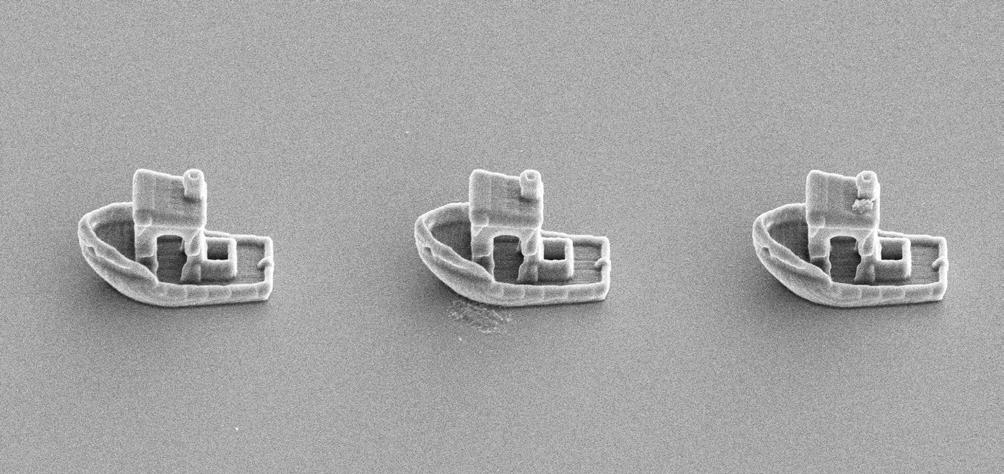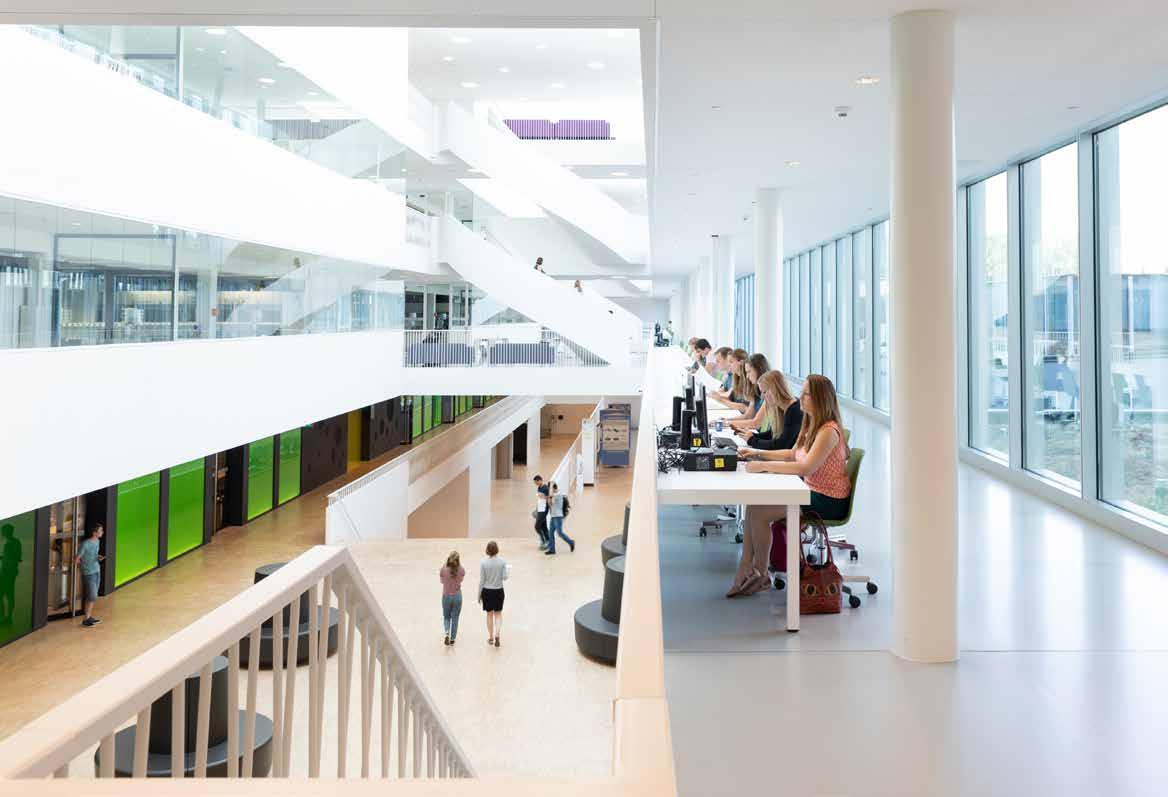
6 minute read
Science
from About us 2021
Curiosity-driven and ground-breaking
At the Faculty of Science, students and staff work together in a dynamic, international environment in which personal and academic development have the highest priority. Driven by curiosity, our people look beyond existing boundaries to increase our fundamental knowledge. They do so for the sake of science but also in a bid to resolve the major challenges of the future.
We are situated in the heart of the Leiden Bio Science Park, one of Europe’s largest science parks, where the University and businesses come together. The Faculty works closely with the Leiden University Medical Center (LUMC) and Delft University of Technology as well as with partners from industry, business and government.
RESEARCH Our researchers from different disciplines work together to come up with solutions to societal problems.
The research in the Faculty is organised into two research profiles:
Fundamentals of Science
Astronomers, mathematicians, chemists, biologists and physicists conduct research into the youngest planets and the oldest galaxies, the largest numbers and the smallest particles. They do this out of a fascination with the unknown. At the same time, their fundamental and sometimes very technical work forms the basis of research into complex macrosystems, such as datasets or biological perspectives. Examples of this research include: • Data Science • The Quantum Computer • Exploring the Universe • Sustainable Energy • Artificial Intelligence.
Bioscience: the Science Base of Health
Recent developments in the life sciences have created exciting opportunities for fundamental research and clinical applications. Gene manipulation techniques and knowledge about the human genome and model organisms are affording us a high level of control over important biological processes. This is delivering new insights into the working of cells, organs and organisms. Examples of this research include: • Effective Drug Development • Keeping the Planet Liveable.
Graduate School
The Graduate School of Science offers eight PhD programmes in the field of science. TEACHING The teaching at the Faculty covers the disciplines of mathematics, computer science, astronomy, physics, chemistry, bio-pharmaceutical sciences, biology and environmental sciences. Students are given a firm disciplinary grounding in the bachelor’s programmes, and in the transition to the master’s phase they learn not only to specialise but also to work together with students from other disciplines. The teaching is closely linked to the multidisciplinary research at the Faculty.
In the research periods, students have a high degree of one-on-one contact with researchers. They are supervised in a mentor and tutor system. Mentors are older students who help show first-year students the ropes. Tutors are lecturers who help students with academic questions or if they are behind in their studies, for instance.
UNIQUE LAB The lab in the Faculty of Science’s Gorlaeus Building is one of the lowest-vibration areas in the world. It has 16 low-vibration ‘islands’, each of which rests on a separate set of springs that absorb almost all vibrations. Our researchers use these islands for experiments that cannot tolerate the slightest disruption, for instance observations at the atomic level with ultra-sensitive microscopes.
5,711 students: 3,438 bachelor’s students and 2,273 master’s students
1,370 staff (970 academic and 400 non-academic staff)
Institutes:
• Institute of Biology Leiden • Institute of Environmental Sciences • Leiden Academic Centre for Drug
Research • Leiden Institute of Advanced Computer
Science • Leiden Institute of Chemistry • Leiden Institute of Physics • Leiden Observatory • Mathematical Institute
120 doctorates
Mathematics (BSc) was one of the top programmes in Keuzegids, the consumer guide to universities, for five successive years.
BACHELOR’S PROGRAMMES
• BSc in Astronomy • BSc in Biology • BSc in Bio-Pharmaceutical Sciences • BSc in Computer Science • BSc in Life Science and Technology • BSc in Mathematics • BSc in Molecular Science and Technology • BSc in Physics
MASTER’S PROGRAMMES
• MSc in Astronomy • BSc in Biology • MSc in Bio-Pharmaceutical Sciences • MSc in Chemistry • MSc in Computer Science • MSc in Pharmacy • MSc in Governance of Sustainability • MSc in ICT in Business and the Public Sector • MSc in Industrial Ecology • BSc in Life Science and Technology • MSc in Mathematics • MSc in Media Technology • MSc in Physics • MSc in Statistical Science for the Life and
Behavioural Sciences
New insight brings sustainable hydrogen closer
Leiden chemists Marc Koper and Ian McCrum have discovered that the degree to which a metal binds to the oxygen atom of water is decisive in the chemical conversion of water to molecular hydrogen. This insight will help develop better catalysts for the production of sustainable hydrogen. This is an important raw material for the chemical industry and is also the fuel needed for environmentally friendly hydrogen cars. The research was published in the journal Nature Energy.
Girl power and science at Girls in Science Day
Working on superconductivity, finding an exoplanet or learning how to program with Python. More than 100 girls came Leiden University in February to find out about science on Girls in Science Day. In addition to the workshops, the girls also had the opportunity to speed date with 15 women with a background in physics, astronomy or computer science. They spoke about their experience of working in business, government or academia. The aim of the day is to inspire girls and give them information about the many possibilities of the fields of physics, astronomy and computer science. Even though the proportion of female science students is increasing, women are still underrepresented in science.
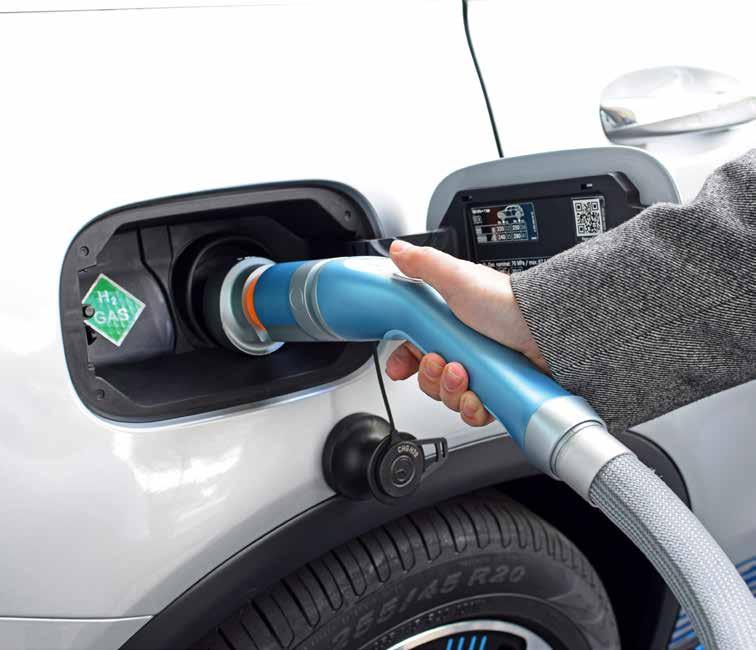
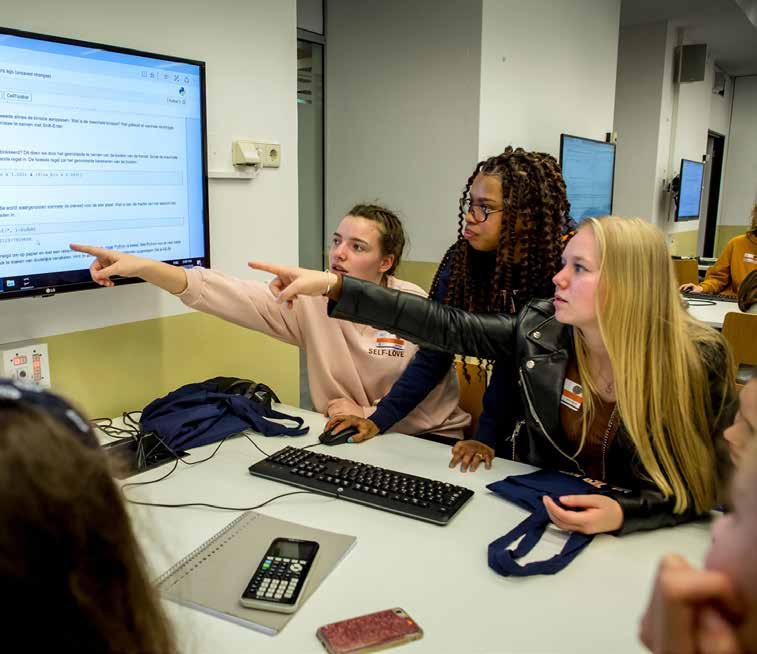
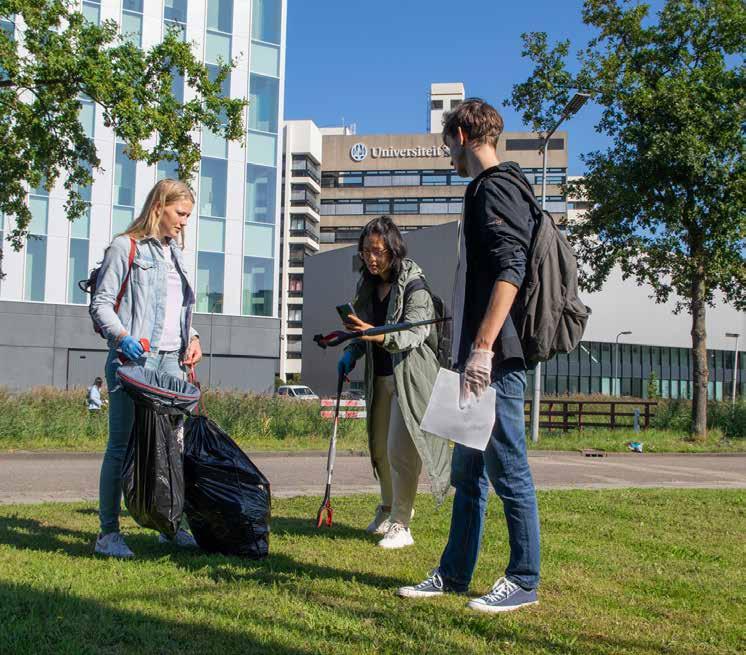
Biology students pick up litter
With a binbag in one hand and a litter picker in the other, groups of biology students wandered through Leiden Bio Science Park in September. As an introduction to the Master’s programme in Molecular Genetics and Biotechnology, the students explored the Park, while at the same time picking up litter and aiding scientific research. Dennis Claessen, an associate professor at the Institute of Biology Leiden (IBL), and Han de Winde, Director of Education at the IBL, came up with the idea of an environmentally friendly introduction to the Park, with the aid of Plastic Spotters Liselotte Rambonnet and Auke-Florian Hiemstra. The students picked up over 2,000 pieces of litter. An app is making it possible to pinpoint what type of litter is found where, and where the hotspots are. This should lead to a more targeted approach to litter prevention.
Micro boat from a 3D printer
This minuscule boat is mind-blowing. Printed by a 3D printer, it measures just 30 micrometres from prow to stern, about a third of the thickness of a hair. It was printed by Leiden physicists Rachel Doherty, Daniela Kraft and colleagues. The image was made using an electron microscope and can be found in their article about 3D printing synthetic microswimmers in the scientific journal Soft Matter. Kraft’s research group is experimenting with microswimmers, small particles that move in fluids and can be followed with a microscope. One of the goals of the experiments is to understand the behaviour of biological microswimmers, such as bacteria. The pictures of the boat, which is invisible to the naked eye, hit the headlines both in the Netherlands and abroad.
